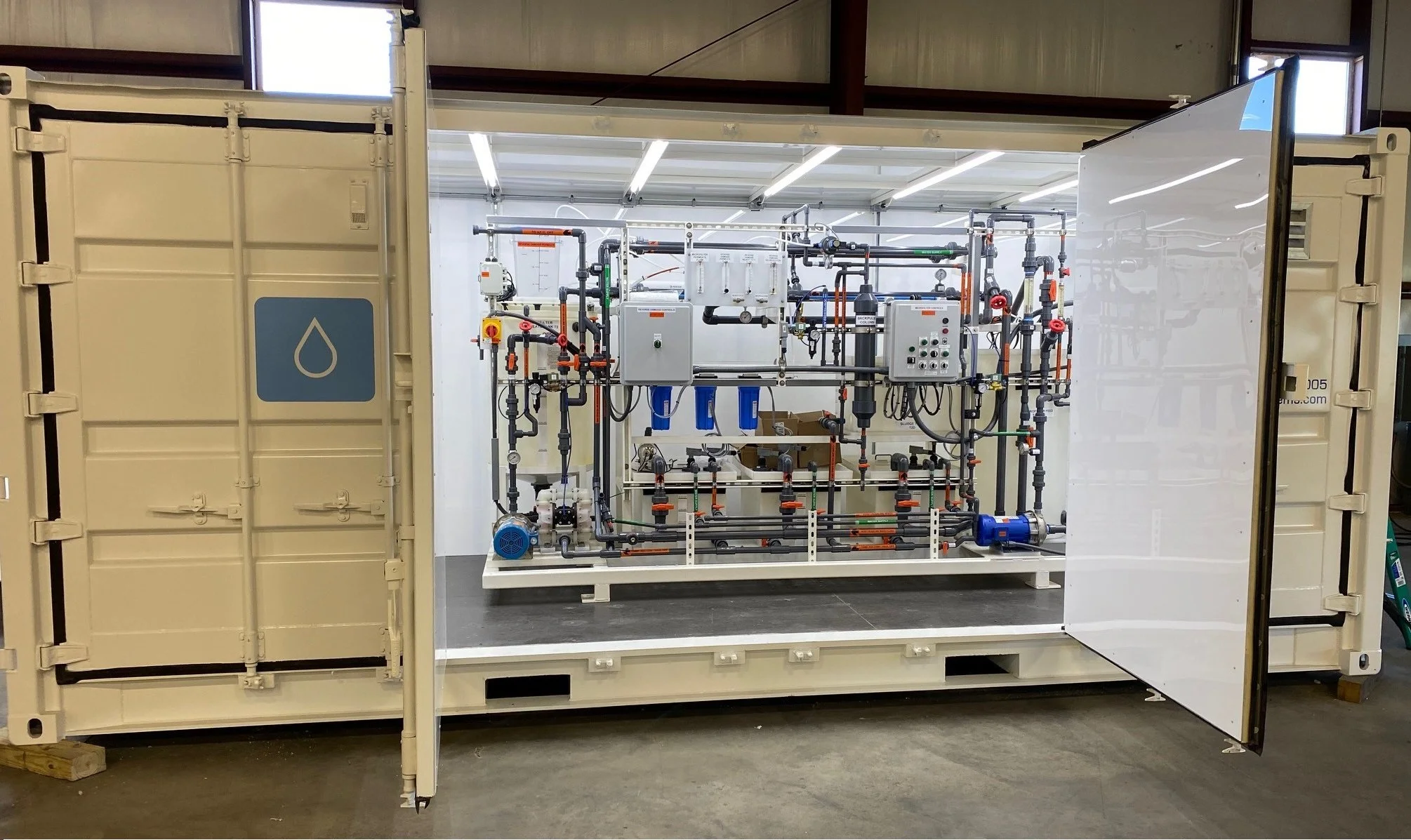
Pilot Programs
-
Get Started
Click “Get Started” to contact a sales representative to initiate a pilot study at your facility.
Industries served
WTRBOX pilot programs can be utilized in most industrial settings to ensure that the chosen solutions are effective, efficient, and environmentally sound before committing to large-scale implementation. Shipped ready for install and start-up with minimal labor and maintenance required.
Purpose of Pilot Programs
Wastewater pilot programs are small-scale, controlled, and temporary studies conducted to evaluate and assess the feasibility, efficiency, and effectiveness of new or innovative wastewater treatment technologies or processes.
Testing New Technologies: Pilot programs allow for the evaluation of emerging wastewater treatment technologies before making substantial investments in full-scale implementation.
Performance Evaluation: The pilot study helps assess the performance of the treatment system, its ability to meet regulatory requirements, and the quality of the treated effluent.
Optimization: Data collected during the pilot program helps optimize the treatment process, allowing engineers to fine-tune the design and operational parameters.
Decision Making: The pilot results aid in making informed decisions about whether or not to proceed with the full-scale implementation of the technology.
Major Benefits
Pilot programs are conducted before full-scale implementation to gather data, identify potential challenges, and optimize the treatment process.
Scale and Duration: Wastewater pilot programs are typically conducted on a smaller scale than full-scale treatment plants. Programs can last anywhere from a few weeks to several months.
Set up and delivery: Pilot programs are skid mounted/modular and can easily be delivered to an existing wastewater treatment facility or a specific site chosen for the study.
Monitoring and Data Collection: During the pilot program, data is collected to assess the effectiveness of a new system. This includes measurements of influent and effluent characteristics, removal efficiencies, energy consumption, operational costs, and other relevant parameters.
Flexibility and Adaptability: Pilot programs offer flexibility to modify and adjust parameters and configurations during the study. This adaptability allows for testing different operating conditions to optimize the technology's performance.
Cost: A pilot program can be a cost-effective way to test an idea before purchasing a new wastewater treatment system.
Let’s get started.
Ready to discuss your water treatment needs? Fill out the form below.
You don’t have to fill out the entire form, but the more information you can include, the faster we’ll be able to help you.




